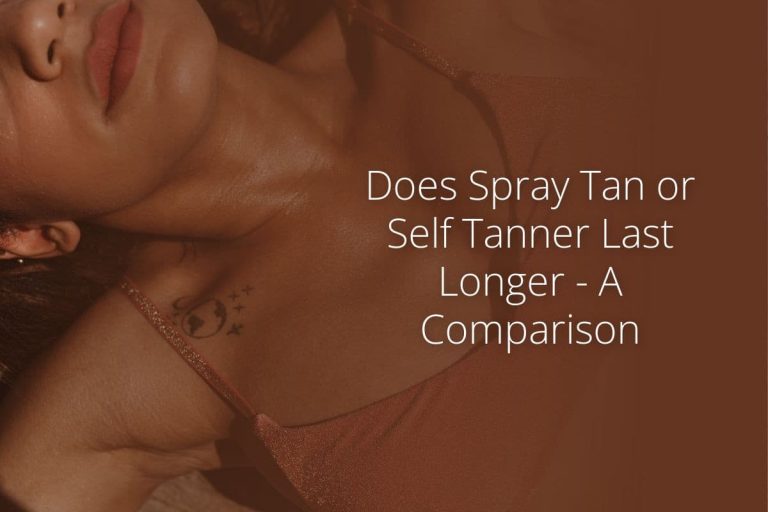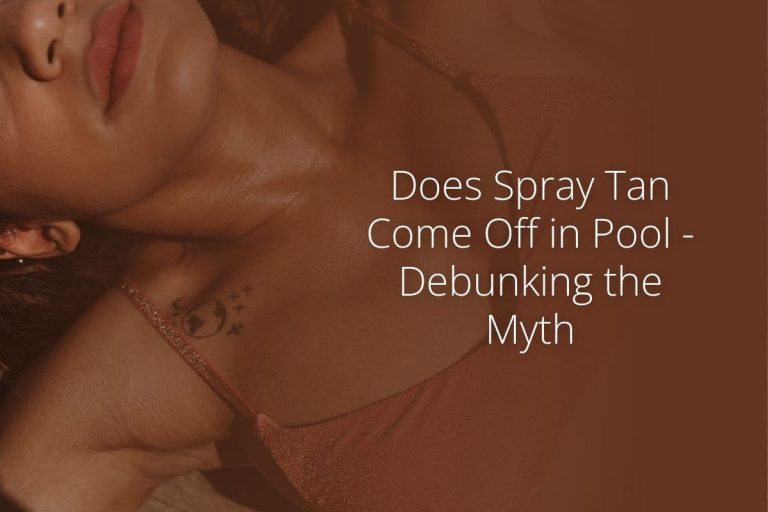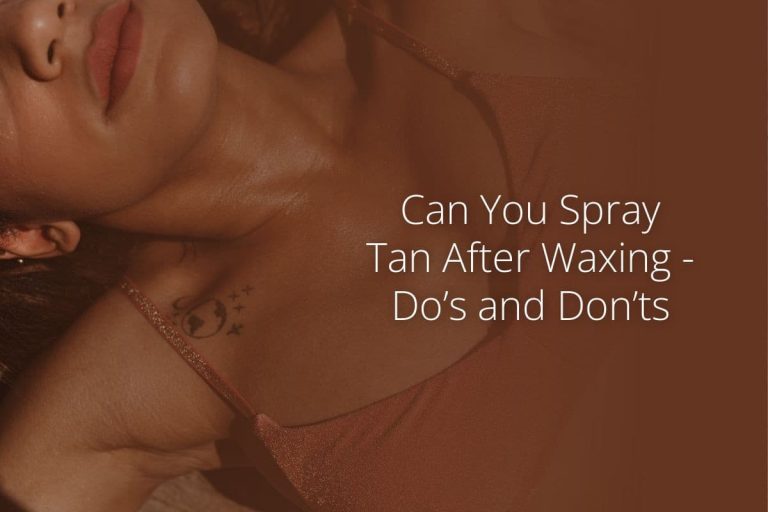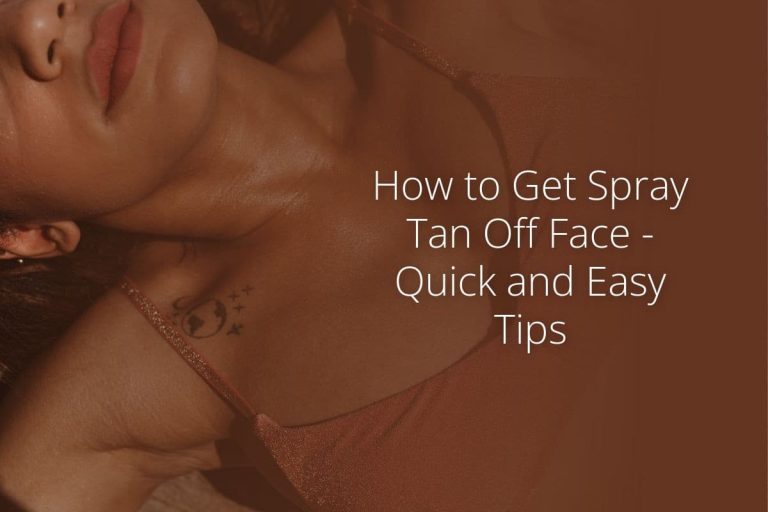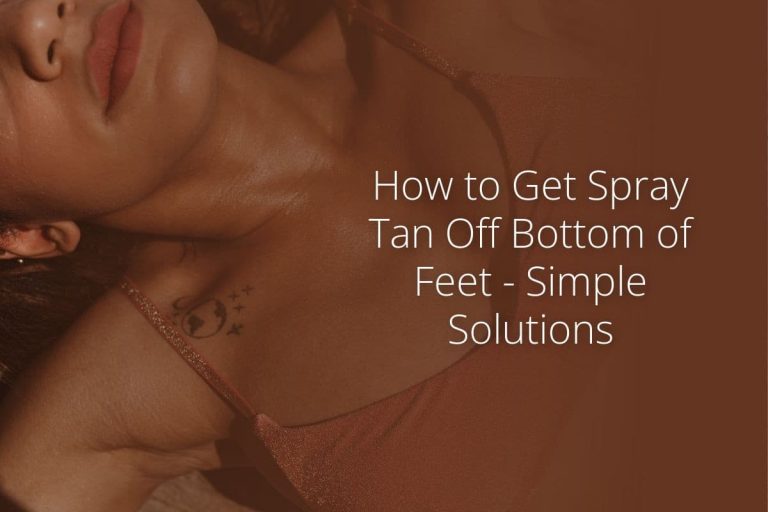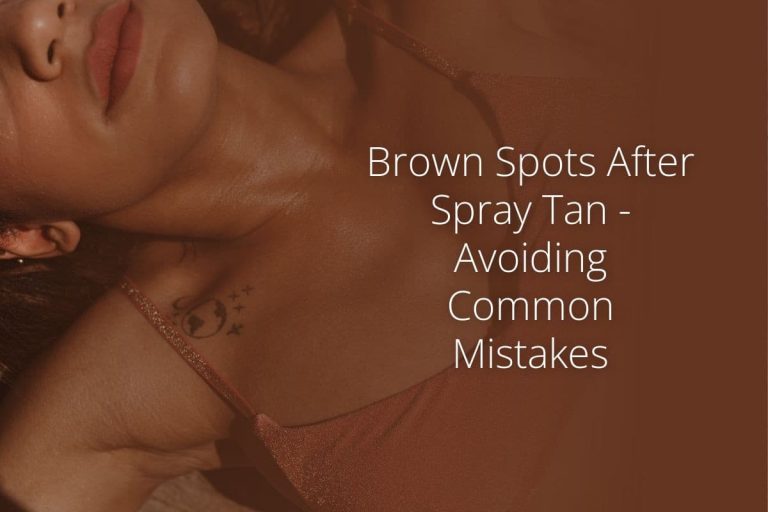
Curious about the safety of spray tanning for pregnant women and their growing fetus? Many moms-to-be wonder if exposing themselves to sunlight poses any risks. Safety concerns naturally arise when considering the effects of sunlight on a pregnant woman and her unborn child, so let’s take a look at the facts.
Spray tanning, when done in moderation, is generally considered safe during pregnancy. The active ingredient in spray tans, DHA (Dihydroxyacetone), stays on the skin’s surface and doesn’t get absorbed into the body, meaning it can’t harm the baby. However, it’s advisable to avoid spray tans during the first trimester when important fetal development stages occur. Also, ensure you’re in a well-ventilated area during the application to avoid inhaling any fumes.
While spray tanning appears to be safe, there’s more to the story when it comes to maintaining your glowing skin during pregnancy. From understanding how hormonal changes might affect your skin’s response to spray tanning to exploring natural alternatives for maintaining a radiant complexion, there’s plenty more you might find beneficial. So, if you’re interested in learning more about skincare and beauty during pregnancy, I invite you to stick around. The information you find might just help you navigate this beautiful journey with grace and confidence.
Potential Risks of Spray Tanning During Pregnancy
Spray tanning sprays may be a popular choice for achieving a sun-kissed glow in the sunlight, but safety precautions must be taken. Here are some important points to keep in mind when using these creams.
- Some ingredients in spray tan solutions may pose risks to pregnant women: Certain chemicals found in spray tan products could potentially harm the health of expectant mothers. It’s crucial to be aware of the ingredients used and their potential effects on pregnancy.
- Inhalation or absorption of chemicals from spray tan products could be harmful during pregnancy: Pregnant women should exercise caution when using spray tan solutions as inhaling or absorbing these chemicals into the bloodstream may have adverse effects. It is essential to prioritize the safety and well-being of both mother and baby.
- Allergic reactions or skin irritations can occur due to the use of certain spray tan solutions during pregnancy: Pregnancy can make the skin more sensitive, increasing the likelihood of experiencing allergic reactions or skin irritations from spray tanning products. It’s advisable for expectant mothers to test any new product on a small patch of skin before applying it all over.
- The potential risks associated with inhaling DHA, a common ingredient in spray tan solutions, need to be considered: Dihydroxyacetone (DHA) is a commonly used ingredient in spray tans that reacts with the amino acids on the skin’s surface, resulting in a temporary bronzing effect. However, its safety during pregnancy has not been extensively studied. As such, it is recommended that pregnant women consult with their healthcare provider before using any DHA-containing products.
It’s important for pregnant women to use sunless tan and weigh these potential risks against their desire for a sunless tan. Consulting with a healthcare provider will provide personalized guidance on how to use sunless tan based on individual circumstances. Ultimately, prioritizing the health and well-being of both mother and baby is paramount during pregnancy.
Limiting Tanning Frequency and Ensuring Safety
Pregnant women should use precautions, especially when it comes to spray tans. Here are some key points to keep in mind for a safe experience.
- Reducing the frequency of sessions: It is important for expectant mothers to limit their exposure to spray tans by reducing the number of sessions they have. This helps minimize any potential risks associated with tanning products during pregnancy.
- Consulting with a healthcare professional: Before getting a spray tan, it is crucial for pregnant women to consult with their healthcare professional. This ensures that they receive personalized advice based on their individual health circumstances.
- Following safety guidelines and using reputable products: Pregnant women should prioritize safety by following proper guidelines and using reputable spray tan products. Opting for sunless tanners that are specifically labeled as safe during pregnancy can help minimize any potential harm.
- Taking breaks between each session: Allowing sufficient time between each session enables the body to eliminate any potentially harmful chemicals from previous spray tans. Taking breaks also reduces the overall exposure to tanning products.
By adhering to these safety precautions, pregnant women can enjoy the benefits of a sun-kissed glow without compromising their health or the well-being of their baby. Remember, always prioritize your safety and consult with your healthcare professional before trying any new beauty routines during pregnancy, including fake tan and tan extender.
Benefits of Getting a Spray Tan While Pregnant
Pregnancy is a time when many women want to feel confident and look their best. One way to achieve a natural-looking glow without the risks associated with sun exposure is through a spray tan. Here are some key benefits of getting a spray tan during pregnancy:
- Boosted self-confidence: A carefully applied spray tan can give expecting mothers a healthy-looking glow, enhancing their physical appearance and boosting self-esteem.
- UV protection: Sun exposure can be harmful during pregnancy due to increased sensitivity to UV rays. Opting for a spray tan instead of soaking up the sun provides an alternative that eliminates the risk of sunburn or skin damage.
- Safe and well-executed: When done correctly, spray tans are safe for pregnant women. It is important to choose a reputable salon with experienced technicians who use high-quality products specifically formulated for pregnancy.
- No harmful chemicals: Fake tans have come a long way, and many modern spray tan solutions are free from harmful chemicals like parabens and phthalates. This ensures that both mom and baby stay safe during the process.
- Mood booster: The positive impact of looking good on our mood cannot be underestimated. By achieving a bronzed appearance through a safe spray tan, pregnant women can experience an uplift in mood and overall well-being.
Precautions for Safe Spray Tanning During Pregnancy
During pregnancy, it’s important for women to take extra precautions when considering spray tanning. Here are some key points to keep in mind:
- Protective Gear: To avoid inhaling any potentially harmful chemicals, pregnant women should consider wearing protective gear during the spray tanning process. Nose filters and goggles can provide an additional layer of safety.
- Organic or Natural Solutions: Opting for organic or natural spray tan solutions can help reduce potential risks and ensure a safer experience for pregnant women. These alternatives typically contain fewer chemicals and are considered safer during pregnancy.
- Patch Test: Before getting a full-body spray tan, it’s recommended to conduct a patch test. This involves applying a small amount of the product on a small area of skin to check for any adverse reactions. This step helps identify if there are any allergies or sensitivities to the product.
- Professional Assistance: Seeking professional assistance from trained technicians who are knowledgeable about safe practices for pregnant clients is crucial. They can guide you through the process, ensuring that all necessary precautions are taken.
By following these precautions, pregnant women can enjoy the benefits of spray tanning while minimizing potential risks. It’s always wise to prioritize safety during this special time in life.
Remember, consulting with your healthcare provider before undergoing any beauty treatments is essential, as they will be able to provide personalized advice based on your specific circumstances.
Conclusion
In conclusion, spray tanning during pregnancy can be a safe and effective way to achieve a sun-kissed glow without the harmful effects of UV radiation. While there are potential risks associated with spray tanning during pregnancy, such as allergic reactions or inhalation of chemicals, these risks can be minimized by taking proper precautions.
Limiting the frequency of spray tanning sessions and ensuring that you choose a reputable salon or technician who uses safe and pregnancy-friendly products are essential steps in ensuring your safety. It is also important to communicate openly with your healthcare provider about your decision to get a spray tan during pregnancy.
Despite the potential risks, there are several benefits to getting a spray tan while pregnant. Not only does it provide an instant boost in self-confidence and body positivity, but it also eliminates the need for harmful sun exposure that can lead to skin damage. Spray tans offer a temporary solution that allows you to enjoy a healthy-looking complexion throughout your pregnancy.
To ensure safe spray tanning during pregnancy, it is crucial to follow some precautions. This includes avoiding inhaling the tanning solution, wearing protective eyewear and nose filters during the session, and conducting a patch test before getting a full-body tan.
In summary, while there are some potential risks involved, spray tanning can be considered safe during pregnancy if proper precautions are taken. However, it is always recommended to consult with your healthcare provider before making any decisions regarding beauty treatments during this delicate time.
So go ahead and embrace that radiant glow with confidence using a fake tan, while keeping yourself and your baby’s health as the top priority. Don’t forget to use a tan extender to maintain your beautiful tan!
FAQs
Can I get a spray tan in my first trimester?
Yes, you can get a spray tan in your first trimester. However, it is advisable to consult with your healthcare provider before undergoing any beauty treatments during pregnancy.
Are there any specific ingredients I should avoid in spray tans?
While most professional-grade spray tans are safe for use during pregnancy, it is recommended to avoid tanning products that contain harsh chemicals such as DHA or parabens. Opt for organic or natural-based solutions instead.
Can I inhale the tanning solution during the session?
Inhaling the tanning solution should be avoided during a spray tan session. Wearing protective eyewear and nose filters can help minimize any potential inhalation.
How often can I get a spray tan while pregnant?
It is generally recommended to limit the frequency of spray tanning sessions to once every two weeks during pregnancy. This allows your skin to fully recover between treatments.
Will a spray tan protect me from harmful UV rays?
No, a spray tan does not provide protection against UV radiation. It only provides a temporary color change to your skin and does not offer any sun protection. Remember to still apply sunscreen when going outdoors.
Can I get a spray tan if I have sensitive skin?
If you have sensitive skin, it is crucial to conduct a patch test before getting a full-body spray tan. This will help determine if you have any adverse reactions to the tanning solution.
Is it safe to get a spray tan in a booth or should I opt for airbrushing?
Both booth and airbrushing methods can be safe during pregnancy if proper precautions are taken. However, airbrushing allows for more control and customization of the tan, making it an ideal choice for many pregnant individuals.
Are there any long-term effects of getting frequent spray tans while pregnant?
There is limited research on the long-term effects of frequent spray tans during pregnancy. To ensure safety, it is advisable to limit the number of sessions and opt for natural-based products.
Can I breastfeed after getting a spray tan?Yes, you can breastfeed after getting a spray tan. However, there are a few important considerations to keep in mind:
- Make sure the spray tan has completely dried before breastfeeding to avoid any potential transfer to your baby.
- It is recommended to cover your nipples during the tanning process to prevent any chemicals from coming into contact with the area where your baby feeds.

